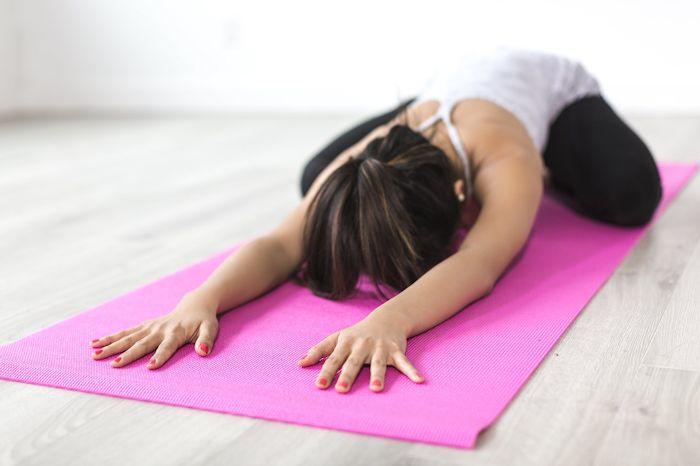Manchester revealed as UK’s fittest city during pandemic
- Written by I Love MCR
- Last updated 4 years ago
- Health & Wellbeing

New research has revealed the UK’s fittest cities during the pandemic – and Manchester comes out on top.
Mancunians exercise 2.54 times a week, the research showed, with 41% training three to six times a week, and 15% working out one or two times every seven days.
Liverpool’s citizens are the second fittest people in the UK, said the study, with London coming third.
According to the survey, half of us claim to live a moderately or very active lifestyle, with 35-44-year-olds most likely to describe their lifestyle as “very active”. At the other end of the scale, 22% admit to living a somewhat or very sedentary lifestyle.
Of all age groups, millennials work out the most, averaging 3.1 times a week, compared with a national average of 2.3 times.
And when fitness centres closed for lockdown, those of us in the North West were the most likely to swap the gym for the great outdoors.

Health and fitness expert Lee Cain is a big advocate for using exercise to boost mental wellbeing.
“Aside from the physical benefits of physical activity and exercise, there are also a profound number of mental and emotional benefits, including reduced stress, anxiety and a more stable mood,” he says.
Lee says there are plenty of ways to stay fit at home during lockdown, too.
“There are lots of things that you can do around the house, like a virtual yoga or Pilates class, some online Zumba, or even just an old school aerobics class.
“YouTube is full of programmes like these that you can do for free.”
And it’s important to keep trying different things, he believes.

“With exercise, variety is necessary in order to prevent boredom, staleness and plateaus in progress.
“If, over-time, you perform the same exercises, in the same order and at the same or similar intensities, the body will find ways of meeting those demands with less. That means that every time you exercise, you burn fewer calories!
“So, it’s important to keep mixing things up so the body is forced to continually adapt.”
But while most of us know the importance of exercise, you may be surprised to hear how you could be unknowingly blitzing calories as you simply go about your day.
An hour vacuuming your home could burn 320 kcals for men and 250 kcals for women, while working out arms, legs, and core, says Lee.
An hour of cooking could burn more calories than half an hour of lifting weights.
And on average, we burn over 3,000 calories a week sleeping.

By spending an hour gardening, you could burn 460 kcals if you’re biologically male or 394 kcals if you’re female – that’s more than half an hour’s worth of jogging (426 kcals for males and 365 kcals for females).
Plus, by getting outside to pull some weeds, you could also soak up some vitamin D, boost your immune system, and lower your blood pressure.
“Whether it’s cleaning windows, gardening, making beds, walking the dog, ironing, mopping or sweeping the floor, the amount of energy expended while performing these tasks can be some four to five times greater than that at rest,” says Lee.
Other seemingly mundane tasks that can burn calories are ironing, baking and even sleeping. What’s more, when you take a hot bath, you burn calories more rapidly thanks to your body temperature rising.
This said, Lee explains, it’s important to recognise that exercise and physical activity are not the same thing and that “their effects as far as ‘calorie burning’ is concerned, can be equal, but not the same.
“Exercise is a structured form of physical activity that is usually performed with the goal of improving one or more aspects of fitness, whereas physical activity is a little more general, and may simply include walking up the stairs.”
- This article was last updated 4 years ago.
- It was first published on 6 January 2021 and is subject to be updated from time to time. Please refresh or return to see the latest version.
Did we miss something? Let us know: [email protected]
Want to be the first to receive all the latest news stories, what’s on and events from the heart of Manchester? Sign up here.
Manchester is a successful city, but many people suffer. I Love Manchester helps raise awareness and funds to help improve the lives and prospects of people across Greater Manchester – and we can’t do it without your help. So please support us with what you can so we can continue to spread the love. Thank you in advance!
An email you’ll love. Subscribe to our newsletter to get the latest news stories delivered direct to your inbox.
Got a story worth sharing?
What’s the story? We are all ears when it comes to positive news and inspiring stories. You can send story ideas to [email protected]
While we can’t guarantee to publish everything, we will always consider any enquiry or idea that promotes:
- Independent new openings
- Human interest
- Not-for-profit organisations
- Community Interest Companies (CiCs) and projects
- Charities and charitable initiatives
- Affordability and offers saving people over 20%
For anything else, don’t hesitate to get in touch with us about advertorials (from £350+VAT) and advertising opportunities: [email protected]

Review: The Engagement Party at Queen Elizabeth Hall ‘is full of immersive fun’



God bless Tony Wilson – how Mr Manchester helped us all to love our city

Meet the neurodiversity champion making workplaces inclusive for all
















